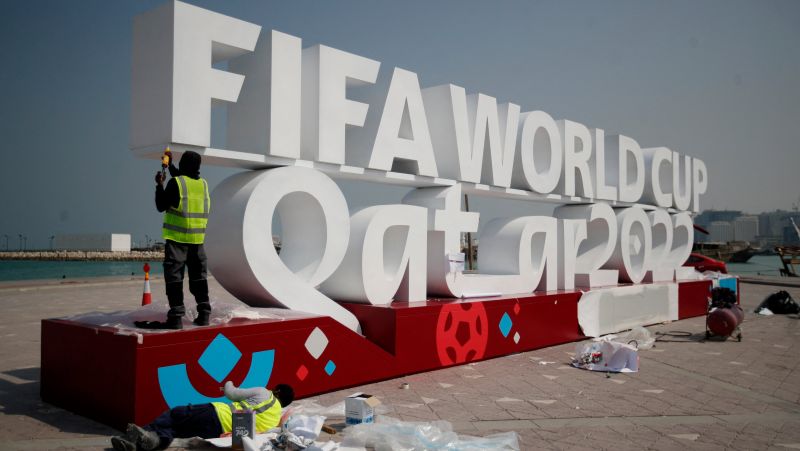Khalil Dridi, a Tunisian adventurer, traveled on foot for about two months from Tunisia to Qatar to commemorate the country's first time hosting the World Cup in Arab history.

Cultural Village Foundation in Katara continues to hold several cultural and creative events. It draws a sizable crowd from many nations, including World Cup supporters, citizens, and locals.
Khalil Dridi, a Tunisian adventurer, traveled on foot for about two months from Tunisia to Qatar to commemorate the country's first time hosting the World Cup in Arab history.
Katara hosts the Tunisian who traveled to Qatar by foot to attend the World Cup
On Friday, he was greeted warmly at the Tunisian Cultural Days celebrations in Building 39's yard. He traveled for about two months and encountered numerous challenges, all of which he overcame to arrive safely in Qatar.
A sizable contingent of Tunisians attended the occasion along with guests from other countries who expressed joy at meeting Dridi.
Abdelbaset Hilali, the head of the Tunisian Community Council, lauded Dridi's efforts to affirm Qatar and Tunisia's friendship and collaboration while bringing a lovely Tunisian touch to the World Cup 2022 celebrations.

He said there wasn't a better site to welcome Khalil Dridi than the Katara Cultural Village. This is not only because there is a space for Tunisian activities, but also because the Katara Cultural Village symbolizes where everyone gathers."
He further stated that the Tunisian Community Council, the Tunisian City of Culture, and the Katara Cultural Foundation collaborated on the Tunisian Cultural Days event.
Along with introducing Tunisian culture and tradition, it also seeks to help regional efforts to promote tourism and offer a variety of events that appeal to a range of demographics.
He also commended the Cultural Village, Katara, and staff for their cooperation and the Tunisian organizers for finding the facilities.
This had a significant positive impact on the lovely image of the diverse content presented, whether about the various traditional goods, foods, or musical performances that resonated with the audience and allowed them to learn about Tunisian musical folklore.
He emphasized that the Tunisian Cultural Days activities would continue every day through December 18 in the cultural district of Katara.
In addition to the many pavilions presenting traditional apparel, jewelry, leatherwork, and a range of well-known Tunisian delicacies, it will include a comprehensive artistic program.
The pavilion "My Identity Center for the Preservation of Islamic Identity" near the Katara Blue Mosque is enjoying a substantial rise in visits. Muslims of all nationalities, Arab or non-Arab, is the campaign's aim, according to Muhammad Al Dakhil, one of the volunteers in the Ambassador effort.
Represent Islam as a religion of love and tolerance that abhor extremism and violence by being good in all dealings, behavior, appearance, and acts of charity.
Additionally, the Palestinian Dabkeh Festival, sponsored by the Palestinian School in Qatar and the Palestinian Embassy in Doha and held on Friday at the amphitheater area of Building 39, drew a sizable audience of Palestinian folklore enthusiasts.
On Friday, December 16, a similar festival is scheduled to take place.
Along with the inauguration of the "Sudanese Barnada" exhibition in Hall 2 of Building 47, today also marks the launch of the "Shamsi" exhibition in Hall 1, organized in partnership with the El Salvadoran Embassy.

